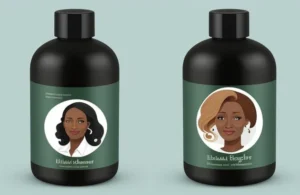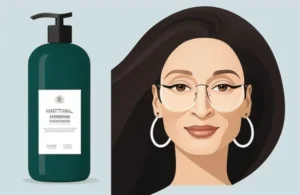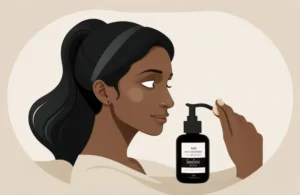
In a world where natural beauty and sustainability are increasingly valued, finding the right hair care products that align with these principles can be a game-changer for your hair health and the environment. If you’re looking to elevate your hair care routine with herbal shampoos and conditioners, you’re in the right place. In this blog, we’ll introduce you to five top-notch brands that have been making waves in the beauty industry with their commitment to using natural ingredients, avoiding harsh chemicals, and promoting sustainability.
What are herbal shampoo and conditioners?
Herbal shampoos and conditioners are hair care products made primarily from natural plant-based ingredients, such as herbs, botanical extracts, and essential oils. These products typically aim to cleanse, nourish, and condition the hair and scalp using ingredients derived from nature rather than synthetic chemicals.
Herbal shampoos often contain ingredients like aloe vera, chamomile, rosemary, lavender, green tea, and various fruit extracts, which are believed to have beneficial properties for hair health. They may also be free from harsh chemicals like sulfates, parabens, and artificial fragrances, making them gentler on the hair and scalp.
Similarly, herbal conditioners usually include plant-derived ingredients such as coconut oil, jojoba oil, shea butter, and argan oil, which help to moisturize, soften, and detangle the hair while providing nourishment to the scalp.
Overall, herbal shampoos and conditioners are popular among individuals seeking natural and gentle hair care options, especially those with sensitive scalps or those who prefer to minimize their exposure to synthetic chemicals.
Which ingredients are essential to check while buying herbal shampoo and conditioner?
When purchasing herbal shampoo and conditioner, it’s important to check the ingredients list to ensure that the product aligns with your preferences and needs. Following are some important ingredients you should definitely check out:
Herbs and Botanical Extracts: Look for specific herbs and botanical extracts known for their beneficial properties for hair, such as aloe vera, chamomile, rosemary, lavender, green tea, and calendula.
Natural Oils: Check for nourishing oils like coconut oil, jojoba oil, argan oil, olive oil, and shea butter. These oils can help moisturize and condition the hair and scalp.
Essential Oils: Essential oils not only add fragrance but also offer various benefits for hair health. Popular essential oils in herbal shampoos and conditioners include lavender, peppermint, tea tree, and rosemary.
Avoid Harsh Chemicals: Look for products that are free from harsh chemicals such as sulfates (e.g., sodium lauryl sulfate), parabens, synthetic fragrances, and artificial colors. These chemicals can strip the hair of its natural oils and may cause irritation to the scalp.
pH Balanced Formulas: Opt for shampoos and conditioners that are pH balanced, as they help maintain the natural pH of the scalp and hair, preventing dryness and irritation.
Certifications: Some herbal shampoos and conditioners may carry certifications such as “organic,” “vegan,” or “cruelty-free,” indicating that they meet certain standards for natural ingredients and ethical practices.
By checking for these key ingredients and avoiding harsh chemicals, you can select herbal shampoo and conditioner products that promote healthier hair and scalp while aligning with your personal preferences and values.

Why are these ingredients important to check? What if these ingredients are not present in any herbal shampoo and conditioner?
These ingredients are important to check because they offer specific benefits for hair health and ensure that the product is formulated with natural and gentle ingredients. Here’s why each category of ingredients is significant:
- Herbs and Botanical Extracts: Herbs and botanical extracts contain vitamins, minerals, and antioxidants that can nourish the hair and scalp. They may also have properties that promote hair growth, soothe irritation, or balance oil production.
- Natural Oils: Natural oils such as coconut oil, jojoba oil, and argan oil are rich in fatty acids and vitamins that moisturize the hair, reduce frizz, and improve shine. They can also help strengthen hair strands and prevent breakage.
- Essential Oils: Essential oils not only provide a pleasant fragrance but also offer various benefits for hair and scalp health. For example, tea tree oil has antimicrobial properties that can help alleviate dandruff and soothe itching, while lavender oil may promote relaxation and reduce stress-related hair loss.
- Avoiding Harsh Chemicals: Harsh chemicals like sulfates and parabens can strip the hair of its natural oils, leading to dryness, irritation, and damage. Synthetic fragrances and colors may also cause allergic reactions or sensitivities in some individuals. Choosing products free from these chemicals helps maintain the overall health and integrity of the hair and scalp.
If these beneficial ingredients are not present in a herbal shampoo or conditioner, the product may not provide the same level of nourishment, moisturization, or other benefits for the hair and scalp. Instead, it might rely on synthetic chemicals or filler ingredients that could potentially cause more harm than good in the long run. Therefore, checking for these key ingredients ensures that you select a high-quality herbal hair care product that supports healthier, more vibrant hair.

Best 5 brands five brands known for their commitment to using herbal and natural ingredients in their hair care products:
- Aveda: Aveda is renowned for its plant-based hair care products that harness the power of botanical extracts and essential oils. Their products are free from parabens, sulfates, and synthetic fragrances, and they prioritize sustainable sourcing and eco-friendly packaging.
- Herbal Essences: Despite being a mass-market brand, Herbal Essences offers a range of herbal-infused shampoos and conditioners that incorporate natural ingredients like botanical extracts and essential oils. They focus on providing effective and affordable herbal hair care options for consumers.
- Biolage R.A.W.: Biolage R.A.W. (Real Authentic Wholesome) is a line of hair care products by Matrix that emphasizes natural, biodegradable ingredients derived from plants. Their formulas are free from sulfates, parabens, and artificial colors, and they strive to minimize environmental impact throughout the production process.
- John Masters Organics: This brand specializes in organic hair care products made with certified organic ingredients. Their shampoos and conditioners feature botanical extracts, essential oils, and herbal infusions to nourish and revitalize the hair and scalp without synthetic chemicals.
- SheaMoisture: SheaMoisture offers a range of natural hair care products infused with organic shea butter, coconut oil, and other plant-based ingredients. Their formulations cater to diverse hair types and concerns, and they avoid common irritants like sulfates, parabens, and phthalates.
These brands prioritize the use of natural and herbal ingredients known for their beneficial properties for hair health. They also typically avoid harsh chemicals and synthetic fragrances, making their products suitable for individuals with sensitive scalp or those seeking gentler alternatives. Additionally, many of these brands are committed to sustainability and ethical sourcing practices, further enhancing their appeal to environmentally conscious consumers.
When it comes to herbal shampoo and conditioner brands, these five stand out as leaders in the industry, each offering unique benefits and values that resonate with today’s conscious consumers. Whether you’re looking for luxury, affordability, sustainability, or inclusivity, there’s a brand on this list that’s perfect for you. So why wait? Elevate your hair care routine with these top-notch herbal hair care products and experience the beauty of nature in every wash.

Online Buyers Bazaar tips to prevent Hair Loss:
- Maintain a Healthy Diet: Eating a balanced diet rich in vitamins, minerals, and proteins can promote hair health and prevent hair loss. Include foods high in iron, zinc, vitamins A and C, and omega-3 fatty acids.
- Keep Scalp Clean: Regularly shampooing and conditioning your hair helps keep the scalp clean and free from excess oil, dirt, and product buildup, which can contribute to hair loss.
- Avoid Harsh Chemicals: Limit the use of harsh hair treatments, such as chemical dyes, bleaches, and perms, as they can damage the hair follicles and lead to hair loss over time.
- Be Gentle with Hair: Avoid over-brushing or pulling on hair when styling, as this can cause breakage and hair loss. Use a wide-tooth comb to detangle wet hair and minimize damage.
- Protect Hair from Heat: Limit the use of heat styling tools like blow dryers, flat irons, and curling irons, as excessive heat can weaken the hair and contribute to breakage and hair loss. Use heat protectant products before styling.
- Manage Stress: Chronic stress can contribute to hair loss, so finding healthy ways to manage stress, such as exercise, meditation, or relaxation techniques, can help preserve hair health.
- Get Regular Exercise: Regular physical activity improves circulation, which can promote hair growth by delivering essential nutrients to the scalp. 30 minutes of exercise three days of the week including stretching and some yoga posture will help in good head to toe blood circulation.
- Stay Hydrated: Drink plenty of water to avoid dehydration, as it can can lead to dry weak hair and hair loss.
- Avoid Tight Hairstyles: Avoid hairstyles that pull on the hair, such as tight ponytails, braids, or buns, as they can cause traction alopecia, a form of hair loss caused by constant pulling on the hair follicles.
- Consult a Professional: If you’re experiencing significant hair loss or thinning, consult a dermatologist or trichologist for personalized advice and treatment options tailored to your specific needs.